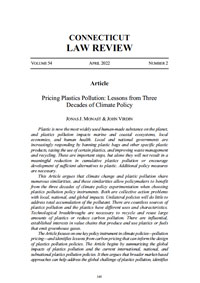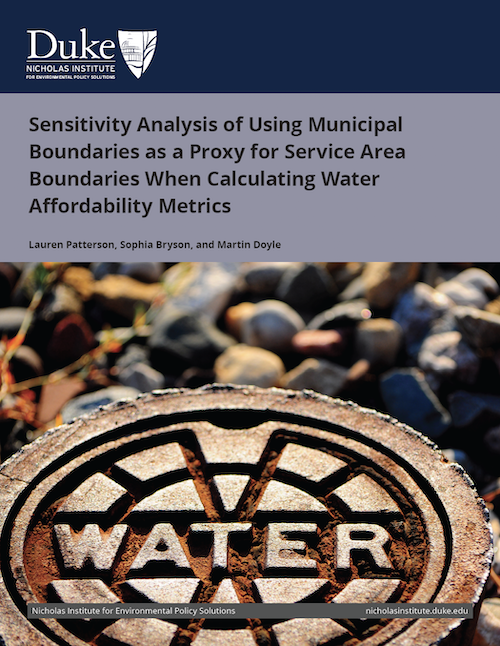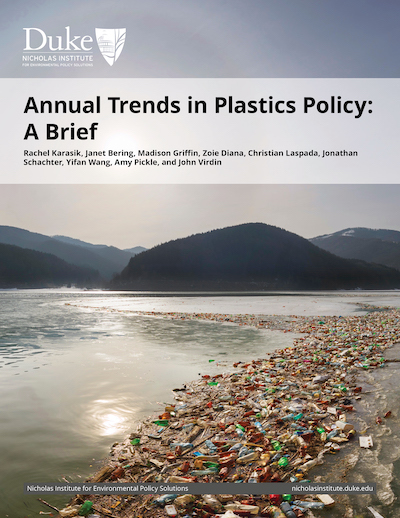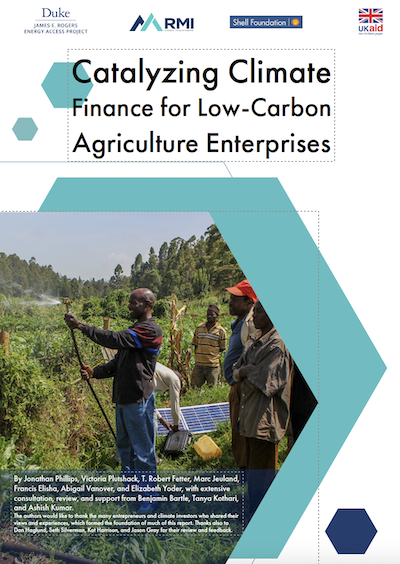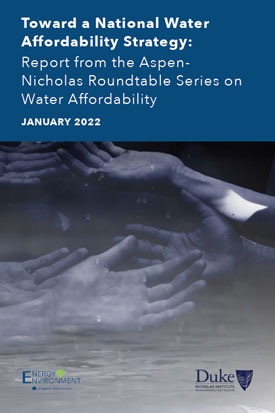Publications
A snapshot of the economic benefits from foreign bottom trawling in coastal West Africa: A mutually-beneficial trade in services, no winners or extractivism?
Large-scale fishing effort in the waters of tropical and lower income countries is predominantly driven by ‘distant water fishing fleets’ often owned by companies based in a small number of countries and has been associated with a range of negative environmental and social outcomes. West Africa is an example where such fleets are a dominant feature. In the waters of Guinea-Bissau, Guinea, Sierra Leone, Liberia and Ghana, 75% of all licensed bottom trawl vessels in 2017 either registered (‘flagged’) or largely owned in China.
Pricing Plastics Pollution: Lessons from Three Decades of Climate Policy
Plastic is now the most widely used human-made substance on the planet, and plastics pollution impacts marine and coastal ecosystems, local economies, and human health. Local and national governments are increasingly responding by banning plastic bags and other specific plastic products, taxing the use of certain plastics, and improving waste management and recycling. These are important steps, but alone they will not result in a meaningful reduction in cumulative plastics pollution or encourage development of sufficient alternatives to plastic. Additional policy measures are necessary.
Utilizing Geospatial Data for Assessing Energy Security: Mapping Small Solar Home Systems Using Unmanned Aerial Vehicles and Deep Learning
Solar home systems (SHS), a cost-effective solution for rural communities far from the grid in developing countries, are small solar panels and associated equipment that provides power to a single household. A crucial resource for targeting further investment of public and private resources, as well as tracking the progress of universal electrification goals, is shared access to high-quality data on individual SHS installations including information such as location and power capacity.
Uncommitted State Revolving Funds
States and the federal government invest in water, wastewater, and stormwater infrastructure by providing subsidized loans and other financial assistance through State Revolving Fund (SRF) programs. The funds are capitalized with federal grants, state contributions, leveraged bonds, and loan repayments. Because the programs largely provide loans rather than grants, the repayment of principal and interest replenishes the pool of capital to finance infrastructure over time. Loan repayments are now the largest source of capital for SRFs.
Sensitivity Analysis of Using Municipal Boundaries as a Proxy for Service Area Boundaries When Calculating Water Affordability Metrics
Water is essential for life, and yet one of the nation’s most pressing water challenges has become ensuring that water services are affordable for households and communities. While there has been growing attention and concern around affordable water services, the actual scale of the problem remains poorly understood, in part because of the lack of data availability.
Tracking International Aid Projects for Ocean Conservation and Climate Action
Ocean conservation and sustainable use cannot be pursued or achieved without consideration of the planetary impacts of climate change, and particularly the role of the oceans in both mitigation and adaptation. For this reason, the international community has increasingly committed to providing aid to help finance public goods for ocean conservation and climate action. Although many organizations have set up mechanisms to track both aid and climate finance, such trackers are usually not focused on financial flows related to ocean conservation and climate action.
Annual Trends in Plastics Policy: A Brief
In 2020, the Plastics Policy Inventory and accompanying report, 20 Years of Government Responses to the Global Plastic Pollution Problem, were published, providing a baseline for the trends in government responses to the plastic pollution problem, as well as highlighting some gaps.
Combatting Illegal Fishing through Transparency Initiatives: Lessons Learned from Comparative Analysis of Transparency Initiatives in Seafood, Apparel, Extractive, and Timber Supply Chains
Over the last two decades, efforts to combat illegal, unreported, and unregulated (IUU) fishing have led to an expansion of initiatives to enhance transparency across the seafood industry through international agreements, national government regulations, and voluntary private initiatives. Understanding of the effects of these initiatives remains limited, and approaches contested among stakeholders.
Catalyzing Climate Finance for Low-Carbon Agriculture Enterprises
Despite minimal contributions to causing climate change, rural households working in the agriculture sector are disproportionately impacted by climate-related shocks and see it as one of the biggest risks to their livelihoods.
Toward a National Water Affordability Strategy: Report from the Aspen-Nicholas Roundtable Series on Water Affordability
The Aspen Institute – Nicholas Institute Roundtable Series on Water Affordability convened U.S. water leaders through the fall and winter of 2021 and into January of 2022, to address one of the nation’s most pressing water challenges: ensuring that water services are affordable for all households and communities. With almost 50,000 community water systems across the U.S., developing systemic solutions is no easy task, but it can and must be done.


